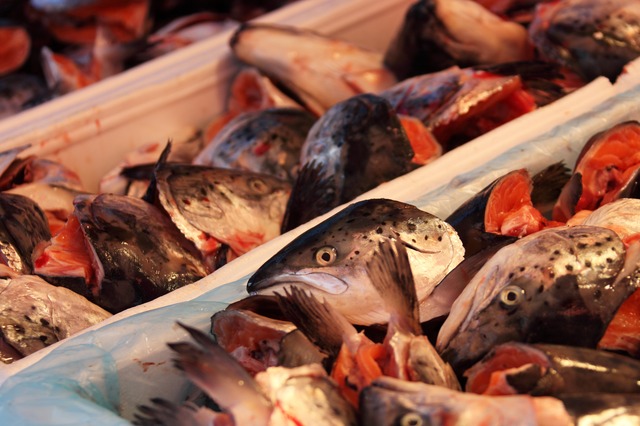Yes, you can compost fish!
Last year, Jim wrote me to say:
“Since you are focusing on the wonderful world of rotting stuff, I wanted to relate a recent experience to you and your fans.
We garden in Alaska, and the whole composting thing is a big challenge for us. Because our average temperature is so low, it literally takes years to compost material.
Last year, we unfortunately had a chest freezer go bad, and it sat for a week before anyone discovered the problem. It was full of red salmon fillets and buffalo meat from what we had harvested previously.
After we cried about the 250 lbs. of rotting meat, we did what a lot of coastal Alaskans have done for 100s of years. We added the meat to the garden.
We garden in raised beds, so we dug out the dirt and placed the fillets (half of a red salmon each—about 2 pounds) in the bottom of the bed. The salmon was layered in the beds about 6 inches apart over the entire bottom of the beds and covered with 10 inches of dirt. We put approximately 20+ fillets (10 whole fish) in each bed.
We planted potatoes, peas, and broccoli in the beds and away we went. Luckily the bears left the beds alone, and the plants prospered.
We got a bumper crop of peas and broccoli, and the potatoes were the largest we have ever seen. The potatoes were the fancy purple kind and they grew 3-5 feet tall with 1-inch stalks.
They gave us a surprise by producing potato berries in large bunches. These berries are like large grapes. Unfortunately, they were everywhere, and the dog ate some and proceeded to vomit toxic berries for 2 days.
Lesson learned there!
So rotting, stinking fish flesh worked wonderfully, and the plants did not show any over-fertilizing problems as you would think.”
Oh heck yeah. When life gives you ruined meat … turn it into potatoes! Just don’t let the dog get into the solanine-rich potato fruits.
In a related idea, a reader e-mailed me this:
“My uncle told me a planting method for papayas in which you dig until you reach water (which, here, it only takes about 6 feet), refill the hole until there is no water showing, start a wood fire at the bottom of the hole, and fill the hole with organic matter.”
Another place for composting fish, perhaps?
I’ve not heard of that precise method, and it sounds like a lot of digging, but it’s not all that different from the melon pits I discuss in Compost Everything. That book also contains details on how to make fish emulsion in a barrel, just in case you don’t feel like digging.
Nature composts everything … why not do the same? Composting fish really isn’t that crazy. Remember the Pilgrims and the Indians? Why have we forgotten what our ancestors knew well?
Just go for it. Giant potatoes don’t lie.
David The Good is a Grow Network Change Maker, a gardening expert, and the author of five books you can find on Amazon: Compost Everything: The Good Guide to Extreme Composting, Grow or Die: The Good Guide to Survival Gardening, Totally Crazy Easy Florida Gardening, Create Your Own Florida Food Forest, and Push the Zone: The Good Guide to Growing Tropical Plants Beyond the Tropics. Find fresh gardening inspiration at his website TheSurvivalGardener.com and be sure to follow his popular YouTube channel.









COMMENTS(2)
No trouble with animals digging up the fish?
This made me laugh! I usually buy fish fillets but this winter I seemed to of gotten lots of full fish to cook up. I pondered what to do with the heads and bones and wrapped them up and shoved them into the freezer to use in the garden this summer. I
instantly remembered how the Indians taught the pilgrims to plant corn with fish. Hence I didn’t hesitate to pack these bones and heads away in my freezer!